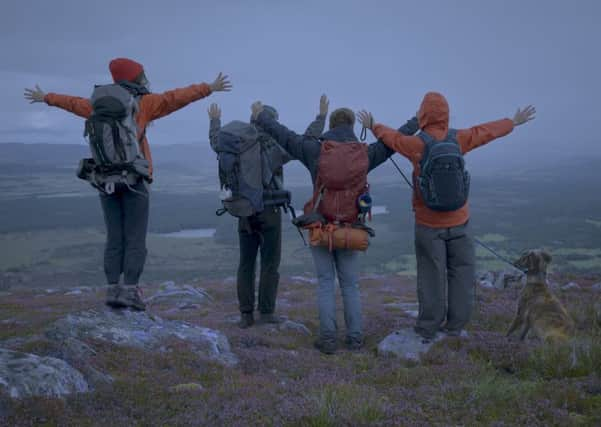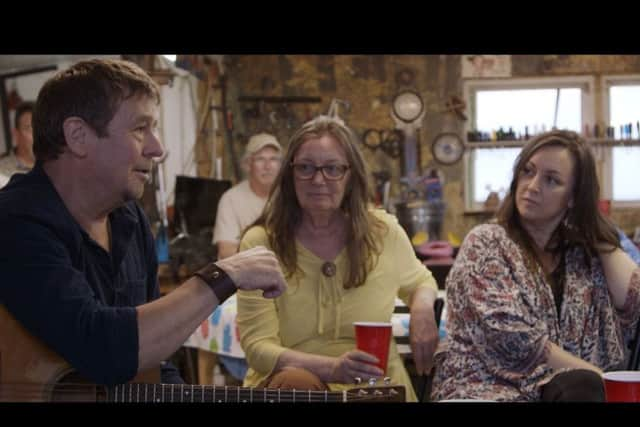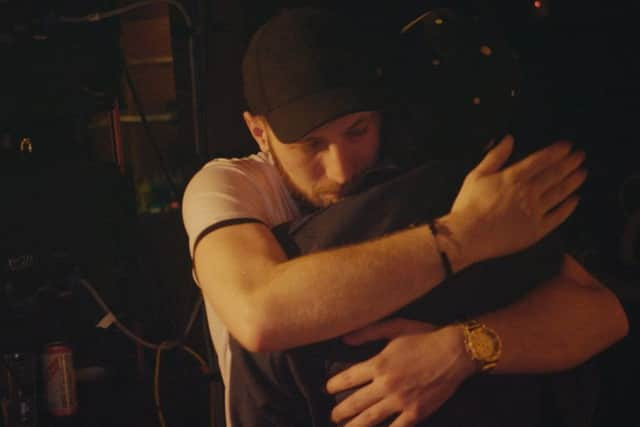Scottish Mental Health Arts Festival to address suicide through award-winning films


How do you make art about suicide? It’s a subject that comes up a lot at the annual Scottish Mental Health Arts Festival (SMHAF), which returns this week.
One answer is to tell stories about people who have lost someone they loved, and this has been a noticeable theme among this year’s SMHAF film award winners. Evelyn is a feature documentary by Oscar-winning director Orlando von Einsiedel about his family’s struggle to talk about the sudden loss of one of their own, 13 years before, and their recent decision to go on a series of walks around the UK to remember him and try to reconnect with each other. In Hannah Currie’s film, We Are All Here, Scotland’s hip-hop community rallies together following the death of a young rapper called Lumo. And in The Song And The Sorrow, Canadian musician Catherine MacLellan talks about living in the shadow of her father Gene, a famous songwriter who died when she was still a child.
Advertisement
Hide AdThe theme of this year’s festival is Connected, a decision inspired partly by the fact that mental ill health can often isolate us from each other. Suicide is perhaps the most extreme example of this. When someone takes their own life, the friends and family they leave behind often feel that they let them down, that they should have connected more with them, that perhaps they didn’t know them at all. This is an important area for Mental Health Foundation Scotland, which leads on SMHAF and is currently undertaking a qualitative research study exploring available support for those who have experienced bereavement due to suicide.


People affected by suicide can feel a strong motivation to forge stronger connections with loved ones who are still alive. This was certainly Currie’s experience in making We Are All Here. She praises the “determination to make a difference” she encountered in Lumo’s friends and family; judging by the response to the film, they already have.
“One male friend sent me a message a couple of months after seeing the film and said that he’d noticed his friend acting differently and reached out to him,” says the director. “The friend had told him he’d been contemplating suicide and that he was the first person who’d asked if he was OK. They are a pretty ‘macho’ group of friends and the film had made him act differently in that scenario, and that is exactly what I hope it will continue to do.”
This process can take time, however. In the opening scenes of Evelyn, von Einsiedel candidly admits that he and his brother and sister have barely talked about their lost sibling since his death. The film he ended up making is in some ways a very public form of therapy – there are tears, hugs and some awkward family moments as the family make their journey across Britain, each place bringing back memories of journeys they made with Evelyn, who loved
hill-walking.


What is most striking about the film, though, is how often during the journey they encounter strangers who have also been affected by suicide, and spontaneously share their stories. This is a common theme in work about suicide – there is stigma around the subject, but if you give people an opportunity to talk about it they will often gladly take it.
The unspoken name in much of this is Scott Hutchison of Frightened Rabbit, who died last year just as the Scottish Mental Health Arts Festival was beginning. The first anniversary of Scott’s death will feel significant and painful for everyone who was close to him. It also feels significant for this festival; Scott was very open about discussing mental health, and had made significant contributions to the festival over the years, most notably the Fruit Tree Foundation music project, a fundraising initiative on which he collaborated with Emma Pollock, Karine Polwart and James Yorkston, among others.
Advertisement
Hide AdScott’s passing will be marked at SMHAF 2019 by a project in the Borders called Song Wave. In a similar spirit to the films above, the project focuses less on his life and work (which we can and should continue to celebrate at all times of year), and more on his impact on other people. Song Wave will involve the creation of a new song, Stay, inspired by the Frightened Rabbit song The Loneliness And The Scream and created collaboratively by numerous people via a project run by the Borders Youth Music Forum. The idea, says Steph MacKenzie, Health Improvement Specialist for Mental Health in the Borders, was to create a piece of music “that glues the community together”. The remaining members of Frightened Rabbit have given Song Wave their blessing.
“We want to recognise Scott’s suffering with mental health issues and the legacy he left of hope and kindness,” says MacKenzie, “and of the importance of connecting with those around you. We also want to celebrate the important impact singing can have on mental health and the feeling of togetherness that it can give us.”
Advertisement
Hide AdSomething similar can be observed in The Song And The Sorrow, screening at SMHAF as part of a double bill with We Are All Here. One of the most moving scenes in the film is the one in which MacLellan performs her father’s songs in front of an audience, while candidly sharing her own experience of mental illness. It’s a connection that hadn’t been possible for her father, who had grown up in a time when there was significantly more stigma around depression. One of his biggest hits, Snowbird, tends to be thought of as “a buoyant and breezy ray of sunshine” (as one review put it) thanks to the most famous recording of it. His daughter’s version highlights the heartache that her dad appeared to be trying to communicate through the song – a heartache that many of his peers, who Catherine also interviews in the film, were unable to hear at the time. They can hear it now.
The Scottish Mental Health Arts Festival takes place across Scotland from 3-26 May. Full programme at www.mhfestival.com. To find out more about MHF Scotland’s study into suicide, contact [email protected]